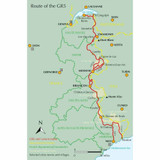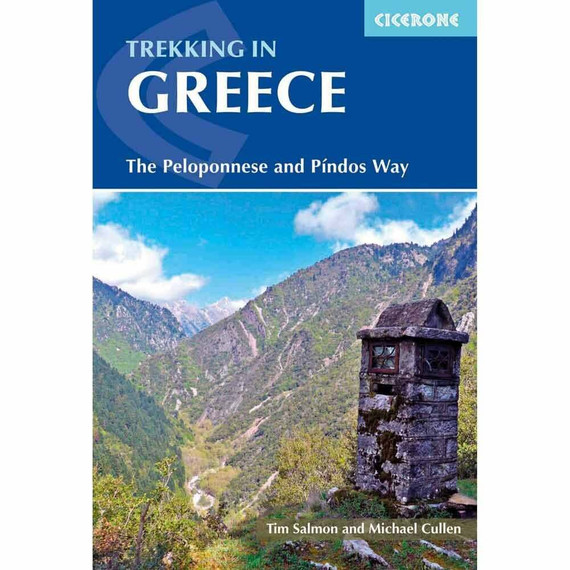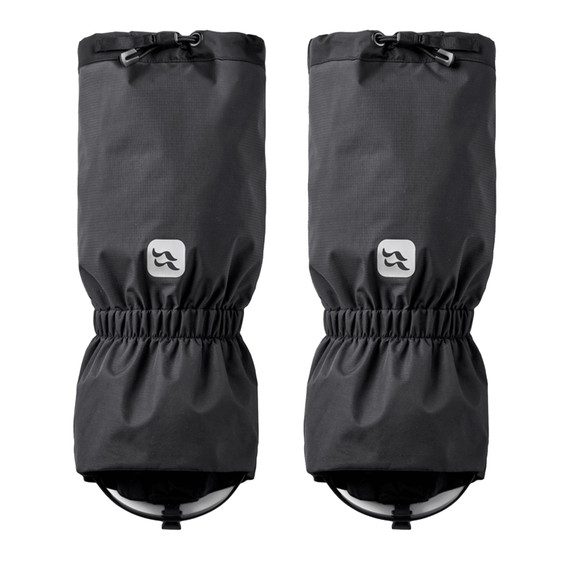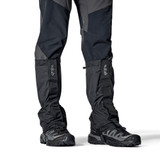Jump to: Our Verdict / Features / Specifications
An essential guidebook to trekking in Ladakh. With detailed descriptions of eight treks in the Ladakh, Zanskar and the Markha Valley of north India, including details on combinations and alternative routes. Ladakh is a remote environment where trekking is extremely challenging, for adventurous trekkers only. Practical information is also included.
Cicerone says:
This trekking guidebook gives detailed descriptions of eight different treks across the Ladakh, Zanskar and Markha Valley in northern India. Ranging from moderate difficulty to very demanding, each trek is broken down into multiple stages, and has information on difficulty, available accommodation and access, as well as the many combinations and alternative routes open to exploration.
Trek 1: Kharnak, 148 km / 10 days. Starts in Kharu in the Indus Valley and ends in Pang, on the Manali-Leh road.
Trek 2: Tsarab Chu, 174km / 12 days. Starts in Pang and ends in Padum, Zanskar.
Trek 3: Darcha to Padum – the classic trek to Zanskar, 135km / 9 days. Starts in Darcha and ends in Padum.
Trek 4: Round Sultanlango, 112km / 6 days. Starts in Padum and ends in Stongde, Zanskar.
Trek 5: Padum to Lamayuru – the classic trek from Zanskar, 148km / 8 days. Starts in Padum and ends in Lamayuru on the Kargil-Leh road.
Trek 6: Padum to Lamayuru via the Kanji La, 169km / 10 days.
Trek 7: Alchi – a circuit over five passes, 98km / 8 days. Starts in Alchi in the Indus Valley and ends in Phanjila, Wanla, Lamayuru, Nurla or Mangyu.
Trek 8: Markha Valley, 113km / 9 days. Starts in Spituk, southwest of Leh and ends in Hemis near the Indus Valley.
Known as Little Tibet; for both its landscape and culture, Ladakh lies at the northern tip of India. The region is bisected by the great River Indus and neighbours Tibet and Kashmir. This quiet corner of the Himalaya has developed a strong trekking culture over recent years for adventurous trekkers. Trekking in this remote, high-altitude region is extremely challenging, as paths are not signed and there are only a limited number of villages. However, its magnificent landscape (a huge area full of limitless trekking possibilities), hospitable people, rich heritage and limited number of tourists make Ladakh an amazing destination.
The guide includes background information on local culture, history and religion, as well as all the planning detail you need on crucial aspects such as environmental responsibility, health and safety in the mountains, trekking practicalities and preparation for altitude.
Our Verdict
For nearly 50 years Cicerone have been producing guidebooks on recognised treks, regions, areas and general tips for hikers.
We have used them countless times and they've always provided excellent insight and knowledge that you only get through experience, giving you the edge to make your trip a success and more enjoyable too.
If you're a gram counter you can easily remove sections of the book to take with you making your own ultra-lightweight guidebook with only the essential sections that you require.
- Reviewed by Ultralight Outdoor Gear
Features
- Seasons: Unlike other parts of the Himalayas, Ladakh is not normally hit by the Monsoon. Therefore summer (June to September) is the best trekking season
- Centres: Access is through Leh, the capital of Ladakh. The treks travel through towns and villages all over the Ladakh region, as well as the Zanskar sub-region and the Phukthal and Karsha monasteries
- Difficulty: High altitude, lack of lodges and restaurants as well as the remoteness of the region make trekking in Ladakh a rather challenging activity. Moderate to very demanding treks have been covered in the book. A number of local agencies can help organise the trip and make the trek much easier
- Must See: The rich Tibetan-style culture, remote mountains, high passes, serene monasteries and Ladakhi people. See K2 from the Kanji Pass. Cover the classic Darcha-Padum-Lamayuru trek. Trace snow leopards and venture up deep river gorges.
Specifications
- Edition: Second
- Number of pages: 384
- Size: 17.2 x 11.6 x 2.4cm
- Weighs 460g
Contents
Introduction
Geology
Landscape
Climate
Plants and animals
History
Trade routes and tourism
Current population
Buddhism in Ladakh
Planning the trip and the trek
What to bring from home
Health and fitness
Visas and permits
Money, insurance and dealing with emergencies
Communication
Local language
Tips on travelling in India
What to take on trek
Using this guide
How to get there
Travelling and sightseeing in Ladakh
On the trek
1 Kharnak
Introduction
Stage 1 Kharu to camp beyond Shang Sumdo
Stage 2 Camp beyond Shang Sumdo to waterfall camp
Stage 3 Waterfall camp to Nyimaling via the Gongmaru La
Stage 4 Nyimaling to Langthang Valley via the Kongka Ngonpo
Stage 5 Langthang Valley to Gunlus Valley
Stage 6 Gunlus Valley to near Dat village, Kharnak Valley
Stage 7 Camp near Dat village, Karnak Valley, to camp near Lungmoche
Stage 8 Camp near Lungmoche to Zara Valley camp
Stage 9 Zara Valley camp to Toze Valley camp
Stage 10 Toze Valley camp to Pang
2 Tsarab Chu
Introduction
Stage 1 Pang to Toze Valley camp
Stage 2 Toze Valley camp to camp beyond Lung
Stage 3 Camp beyond Lung to Morang La Advance Base Camp
Stage 4 Morang La Advance Base Camp to Tsokmitsik
Stage 5 Tsokmitsik to Satak
Stage 6 Satak to Hormoche
Stage 7 Hormoche to Nyalo Kuntse La Base Camp
Stage 8 Nyalo Kuntse La Base Camp to Yata
Stage 9 Yata to Phukthal
Stage 10 Phukthal to Pepula
Stage 11 Pepula to Mune
Stage 12 Mune to Padum
3 Darcha to Padum: the classic trek to Zanskar
Introduction
Stage 1 Darcha to Zanskar Sumdo
Stage 2 Zanskar Sumdo to Chumik Nakpo
Stage 3 Chumik Nakpo to Lhakhang Sumdo
Stage 4 Lhakhang Sumdo to Kargyak
Stage 5 Kargyak to Testha
Stage 6 Testha to Purni (and Phukthal Gompa)
Stage 7 Purni to Pepula
Stage 8 Pepula to Mune
Stage 9 Mune to Padum
4 Round Sultanlango
Introduction
Stage 1 Padum to Raru
Stage 2 Raru to Kalbok
Stage 3 Kalbok to Phukthal
Stage 4 Phukthal to Niri Valley camp
Stage 5 Niri Valley camp to Shingri Valley camp
Stage 6 Shingri Valley camp to Stongde Gompa
5 Padum to Lamayuru: the classic trek from Zanskar
Introduction
Stage 1 Padum to Pishu
Stage 2 Pishu to Hanamur
Stage 3 Hanamur to Nyetse
Stage 4 Nyetse to Lingshed
Stage 5 Lingshed to Sengge La Base Camp (Gazho)
Stage 6 Gazho to Photoksar
Stage 7 Photoksar to Phanjila via the Askuta Way
Stage 8 Phanjila to Lamayuru
6 Padum to Lamayuru via the Kanji La
Introduction
Stage 1 Padum to Pishu
Stage 2 Pishu to Hanamur
Stage 3 Hanamur to Zhingchan
Stage 4 Zhingchan to Squaz
Stage 5 Squaz to Dibling
Stage 6 Dibling to Kanji La Southern Base Camp
Stage 7 Kanji La Southern Base Camp to Kanji La Northern Base Camp
Stage 8 Kanji La Northern Base Camp to Chomotang Togpo Valley
Stage 9 Chomotang Togpo Valley to Shillakong
Stage 10 Shillakong to Lamayuru
7 Alchi: A circuit over five passes
Introduction
Stage 1 Alchi to Stakspi La Base Camp
Stage 2 Stakspi La Base Camp to Sumdha Chungun
Stage 3 Sumdha Chungun to Manechan
Stage 4 Manechan to Hinju
Stage 5 Hinju to Ursi
Stage 6 Ursi to Tar
Stage 7 Tar to Mangyu
Stage 8 Mangyu to Alchi
8 Markha Valley
Introduction
Stage 1 Spituk to Zhingchan
Stage 2 Zhingchan to camp below Kanda La
Stage 3 Camp below Kanda La to Shingo
Stage 4 Shingo to Pentse
Stage 5 Pentse to Markha
Stage 6 Markha to Hangkar
Stage 7 Hangkar to Nyimaling
Stage 8 Nyimaling to Chuskyurmo
Stage 9 Chuskyurmo to Hemis
Appendix A Treks overview table
Appendix B Stage summaries
Appendix C Some Ladakhi language words and phrases
Appendix D Glossary
Appendix E Embassies and consulates
Appendix F Further reading


















